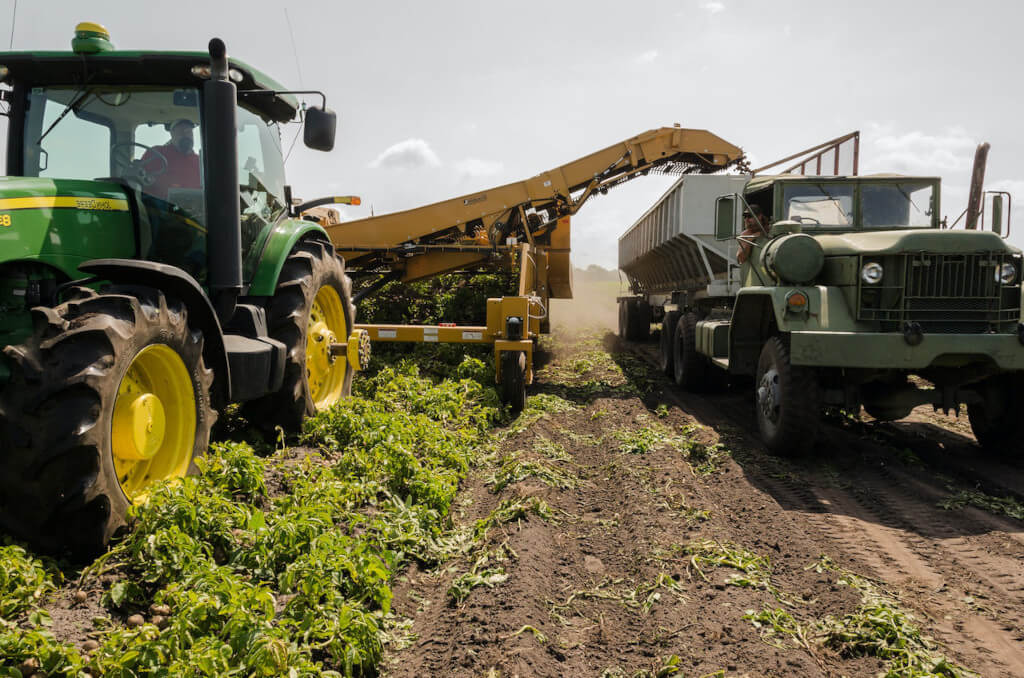South Africa is just now arising following one of the best years for the majority of its agricultural subsectors. The harvesting of grains, oilseeds, and even some fruits was exceptionally abundant during the 2020/21 season. These factors increased earnings from exports and enhanced agricultural incomes, particularly for grains, where large harvests happened to coincide with higher crop prices, leading to improved farm incomes.
When it first began, the current season, which is 2021/22, held the promise of being remarkable. However, the persistence of the torrential rainfall has proven to be a struggle for several regions, resulting in the destruction of crops and the postponement of planting. La Nia is to blame for the heavy rains that began in the new year, which come after yet another year of greater precipitation. As a consequence of this, numerous crop surveys have pointed to the possibility of a reduction in the amount of produce harvested in 2021/22.
If the extent of the damage to the crops turns out to be significant, then the coming year could be a financially challenging one for the agricultural community. Another wake-up call that changing climate is driving increasingly unpredictable weather patterns is the devastation that is currently being caused.
In addition to the unpredictability of the climate and its effect on the harvest, the coming year holds the potential for several positive breakthroughs, but it also threatens to become increasingly challenging if existing issues are not resolved.
The impending release of an Agriculture and Agro-processing Master Plan, as well as the potential launch of the Land Reform Agency, are two positive developments that should be welcomed.
For either initiative to be successful, participation from the private sector is necessary. Up until this point, the process of formulating the master plan has been carried out in conjunction with all of the involved parties (business, labor, community, and government). This cooperation must continue into the implementation phase. Additionally, assistance from the private sector will be required by the Land Reform Agency, particularly after it has been created and begins operations.
On the other hand, the poor state of municipalities is the first sign of impending doom for the industry. This is the first black cloud on the horizon. If the situation continues to deteriorate, the knock-on effects will be devastating.
The efforts to roll out the master plan may be thwarted, and it poses a threat to the agricultural industry as a whole as well as to other parts of the economy. The same can be said for the infrastructure of the logistics sector, particularly the rail, which is coming under fire, putting at risk industries that are focused on exporting goods, such as agriculture.
Priorities in Public Policy
The Agriculture and Agro-processing Master Plan was the primary point of concentration for the sector in the year 2021. This is a social compact program that aims to increase the competitiveness of the agricultural sector, expand the incorporation of black farmers, and increase agricultural production. It is anticipated that this will be introduced within the first half of this year. The investment of all involved parties is going to be crucial to the success of the implementation.
Up to this point, the plan has primarily been discussed on a national scale. However, the actual implementation will take place at the municipal and provincial levels. Guarantee that local structures have a firm understanding of the responsibility division should be the priority of the government, and this should be their top priority.
The discussion regarding land reform will continue to be a component of the policy debate throughout this year. First, the Land Reform and Agricultural Development Agency, which President Cyril Ramaphosa initially noted in his state of the nation address in 2021, might be initiated within the first half of the year. Land redistribution will likely be the primary focus of this agency. Again, collaboration from the private sector is necessary for this extremely important area.
Secondly, the ANC will hold its annual policy conference this year. One of the contentious issues that surfaced during the most recent conference was the implementation of a policy resolution that called for the expropriation of property without compensation. The policy resolution was accompanied by several specific qualifications, such as the guarantee that the implementation of the policy would not hurt the economy and food security.
In December 2021, this policy was unsuccessful in garnering support from members of the National Assembly. In my opinion, this was a positive turn of events that transpired. Despite this, the ANC will likely look into the matter again. Because the outcome of the policy conference will have repercussions for the agricultural industry as well as agribusinesses, it is important to keep an eye on it.
Putting a Stop to What’s Broken
The municipal governments in South Africa are showing increasing signs of incompetence. This is making the financial strain for agriculture in some towns even more difficult to bear because farmers have taken on public obligations such as the upkeep of roads and the provision of water.
The strengthening of community leaders will be an important development to keep an eye on. It coincides with the poor infrastructure of the roads, which is an extra financial strain for agribusinesses because certain commodities are extremely reliant on roads to be transported. Take, for example, the business of grains and oilseeds. Road transport accounts for approximately eighty percent of this subsector’s total produce movement.
The nation’s goal of expanding its export markets to countries like China, India, Bangladesh, Japan, and Saudi Arabia, among many others, requires the establishment of a functional infrastructure as well as logistics that are as effective as possible. The government has been successful in selling pears in China over the past year, but the ultimate objective is to achieve greater accessibility for a wider variety of products.
To accomplish this, the country’s logistics problems, specific inefficiencies in its rail and port systems, will need to be resolved. Given the vandalism that has been committed against rail infrastructure, the government could increase its focus on security in this area. This might necessitate a greater presence of law enforcement and personnel dedicated to gathering intelligence on criminal activity.
Regarding port facilities, the state-owned utility Transnet has indicated that it is open to discussing potential collaborations with private companies. This is a very encouraging turn of events. The effectiveness of South Africa’s ports has declined in recent years. According to research carried out by the World Bank, South African ports are ranked among the least effective of all 351.
There are still other aspects of capability that need to be worked on. For instance, recent reports in the media have suggested that the South African government’s animal vaccine manufacturing business Onderstepoort Biological Products is woefully inefficient. Because the organization is in charge of the production of vaccines for livestock, this poses a significant threat. As a result, it is necessary for the continuation of the prosperous livestock industry in South Africa.
Restoring Its Former Capabilities While Also Investing in the Expansion of Its Infrastructure Should Be the Primary Focus
The Land and Agricultural Development Bank of South Africa is another institution that needs to be reformed significantly because of its enormous importance across the agricultural industry (Land Bank). After facing difficulties with its liquidity, the institution has been given a fresh start with the installation of a new board. The bank continues to be one of the pillars of South Africa’s agricultural economy, and it should be playing a key role in providing funding to the sector, and therefore aiding transformation and sustainable development.
For the agricultural sector to successfully adjust to a new set of guidelines imposed by the European Green Deal, robust institutional abilities will be required even more urgently than before. The new “Farm to Fork strategy” being implemented by the European Union is designed to guarantee that agriculture, fisheries, and the overall food system collectively and effectively contribute to the reduction of greenhouse gas emissions.
The consequence will be increased compliance costs for South African farmers, which will almost certainly nullify the benefits of the existing preferential trade agreements.

